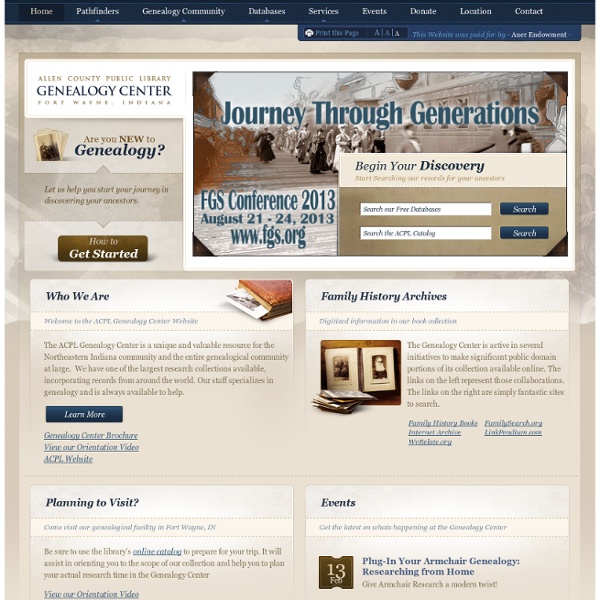The Genealogy Center - Allen County Public Library

Harvard Map Collection
The Harvard Map Collection is one of the oldest and largest collections of cartographic materials in the United States with over 500,000 items. Resources range from 16th century globes to modern maps and geographic information systems (GIS) layers. A selection of our materials has been digitally imaged and is offered both as true picture images and georeferenced copies. This Virtual Collection includes those maps and atlases that are available through the Harvard Image Delivery Service. Those maps that have been georeferenced are available through the Harvard Geospatial Library. Therefore, many of the maps listed will have two records, one for the image that is true to the original and the other a georeferenced image. Only a small portion of the Map Collection has been cataloged and included in Hollis and an even smaller selection are included in this virtual collection as digital images.
Live Roots Genealogy Search Engine - Over 241,000 Resources Cataloged
Family History Books
RootsWeb.com Home Page
Related:
Related:



